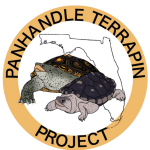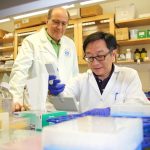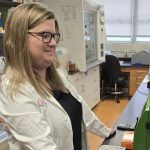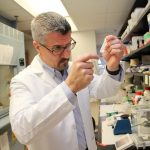Category: Research
Citizen scientists help UF researchers protect keystone species

UF/IFAS Florida Sea Grant agent Rick O’Connor’s Panhandle Terrapin Project recently commenced its 20th season combing the Gulf coast in search of terrapins.
How to go from powerless to proactive at work

New research co-authored by Trevor Foulk, Ph.D., suggests workers can overcome powerlessness by reframing their situation as an opportunity.
Unraveling the mysteries of dark energy at UF

Recently, groundbreaking data has brought new urgency to the study of dark energy. Zachary Slepian, Ph.D., an associate professor in the UF Department of Astronomy and a member of the Astraeus Space Institute, is at the forefront of this cosmic investigation.
UF professor develops AI tool to better assess Parkinson’s disease, other movement disorders

Diego Guarin, Ph.D., has developed a program called VisionMD that uses AI to help doctors more accurately monitor subtle motor changes in patients.
UF professor’s paper ranks No. 2 in citations this century

A publication by Thomas Schmittgen, Ph.D., chair of pharmaceutics in the UF College of Pharmacy, has nearly 150,000 citations in the Web of Science database.
Researcher finds potential treatment for lost sense of smell

UF and Northwestern University scientists significantly reduced nasal inflammation and improved the sense of smell in mice by using a vitamin D nasal spray.
UF Research Foundation names 2025 professors

The University of Florida Research Foundation has named 35 of the university’s most productive and promising faculty members as UFRF Professors for 2025.
The UFRF Professors were recommended by their college deans based on nominations from their department chairs, a personal statement and an evaluation of their recent research accomplishments as evidenced by publications in scholarly journals, external funding, honors and awards, development of intellectual property and other measures appropriate to their field of expertise.
UF researchers identify safer pathway for pain relief

UF scientists have helped identify a novel drug compound, offering a potentially safer alternative to conventional pain medications.
The sweet history of chocolate draws thousands to St. Augustine

Tourism in St. Augustine got a delicious boost last winter when UF researchers introduced a free exhibit about the history of chocolate, created thanks to a $14,000 Forrest E. Mars, Jr. Chocolate History Grant.
UF professor Clarissa Carr, Ph.D., and UF Master of Historic Preservation student Anthea Grant, pictured above, were recently awarded an additional $17,000 to conduct further research on cultural traditions related to cocoa production.
Applying AI to cancer research, a UF professor helps transform medical imaging

Researchers at the UF Health Cancer Center are developing AI algorithms to improve diagnostic accuracy and lower health care costs.
« Previous Page — Next Page »